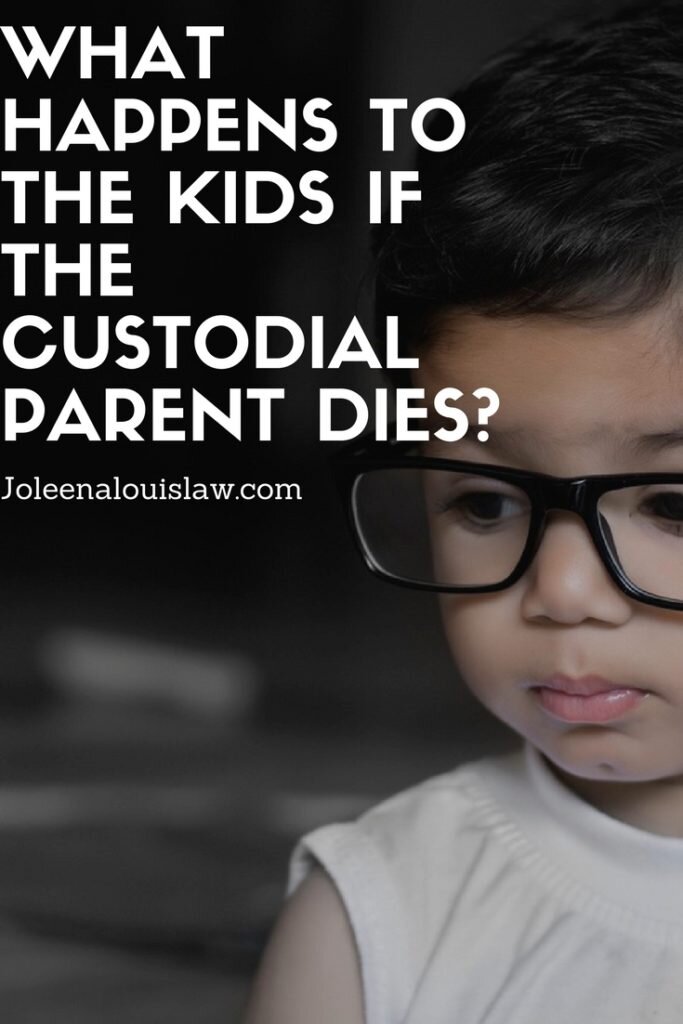What Happens To The Kids if the Custodial Parent Dies?
A very common concern many parents have is what happens to their children the custodial parent dies.
Every parent should have a plan for their children in the event of the parents' death, but there are specific concerns if the parents are no longer together.
Surviving Parent Takes Priority
Regardless of who has custody, or if the deceased parent has a will, the surviving parent will be considered the child’s natural guardian. An order of custody does not terminate the non-custodial parent's parental rights and, if appropriate, the child will go to them.
If the surviving parent comes forward, unless they are found to be unfit, they will likely get custody of the child.
If the surviving parent is the father, paternity has to have been established. This means:
- You were married when the child was born
- The father signed the birth certificate
- The father signed an Acknowledgment of Paternity
- There is an order of filiation naming the father
It’s important to note that if you have children who have different surviving parents, they may be split up.
When A Guardian Can Take Custody
There are four ways a guardian chosen by the custodial parent can take custody:
- The other parent predeceased (died before) the custodial parent.
- The other parent's parental rights were previously terminated.
- The other parent abandoned the child. If the surviving parent does not come forward or does not want custody, the court will usually appoint the guardian named in the will.
- The other parent is unfit. If it is NOT in the child’s best interest for the surviving parent to have custody (due to a history of drugs/alcohol/abuse) a third-party can petition for custody. The non-parents needs to prove: (1) there are extraordinary circumstances like surrender, unfitness, extended disruption of custody, or abandonment; and (2) the child’s best interests are to live with the non-parents.
How to Protect Yourself and Your Children
The best way to protect yourself is to have a will naming an appropriate guardian, in case the surviving parent is not willing or able to get custody of the children.
An appropriate guardian is someone who has no criminal background, especially no history of abuse or neglect. If you want to name a grandparent, keep in mind that they should be young and healthy enough to be able to sufficiently care for the children. It's always a good idea to confirm with the named guardian that they would be willing to take on the children and name an alternate in case the first guardian is no longer available.
Your will should also name a conservator to manage any assets you leave your children. Should your ex get custody of your children, you may not want them to manage the money left for the children so you should name someone you trust to manage those assets on the children’s behalf.
Even if you are the noncustodial parent, it may be a good idea to have a will naming a guardian. If you were to pass away shortly after the custodial parent, before you could create or update your will, your children could go into foster care. Naming a guardian just in case you were to get custody is an easy way to ensure your children remain with people you trust not matter what.
Need help creating your NY will? Schedule an estate planning consultation today.
